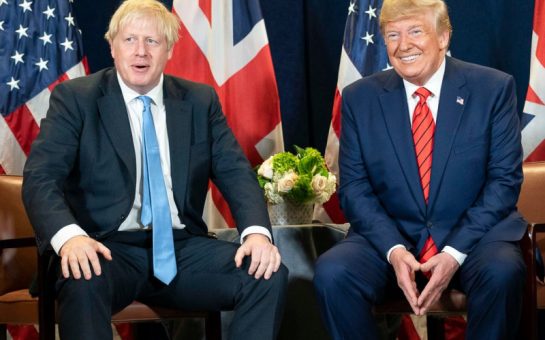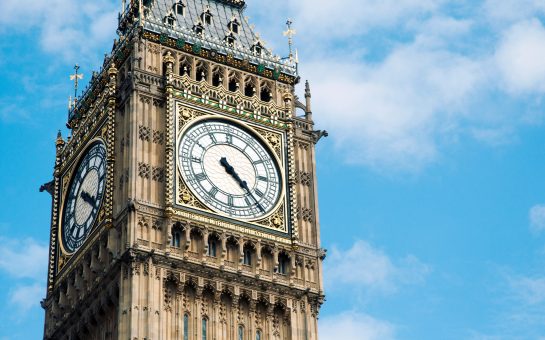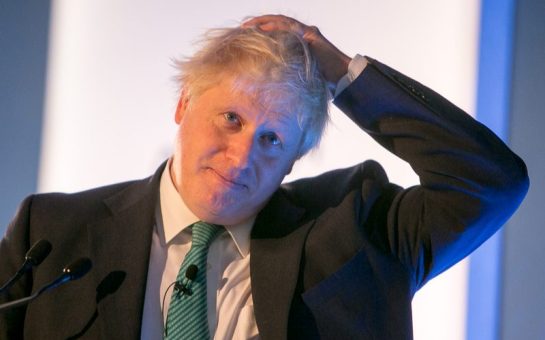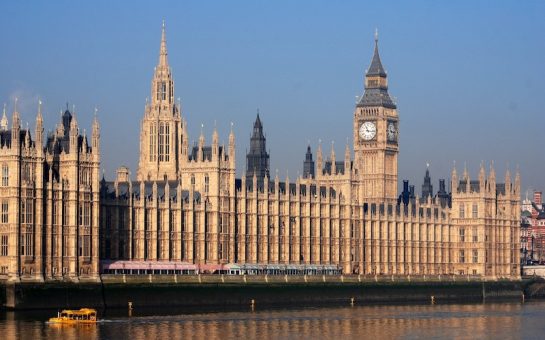By Imogen Smith
August 6 2020, 18.25
Follow @SW_Londoner
Oxfam is calling for urgent clarity on where the government’s £2.9 billion worth of cuts to the UK foreign aid budget will fall.
Foreign Secretary Dominic Raab revealed the £2.9 billion budget cut in a letter to the International Development Committee on July 22, the day before MPs left Parliament for their summer recess, removing the possibility of immediate parliamentary scrutiny over the move.
The foreign aid budget cut follows Boris Johnson’s announcement in June that the Department for International Development (DFID) will be merged with the Foreign and Commonwealth Office (FCO) to create the Foreign, Commonwealth and Development Office.
Sam Nadel, Oxfam’s acting head of government relations, said: “The Government must stick by its recent commitment to protect aid spending that pays for things like clean water, food and medicine to help the poorest people.
“The fact that there is already a lack of transparency around the cuts does not bode well for the new department.
“We urgently need clarity about where the cuts will fall and what it will mean for the poorest communities – those struggling to survive this crisis with no health or social safety nets to fall back on.”
International Development Committee Chair Sarah Champion said of Mr Raab’s actions: “To release this news literally as parliament rises so there can be no scrutiny by MPs is poor practice.”
Mr Raab said the UK would still meet its statutory commitment to spend 0.7% of Gross National Income on Overseas Development Aid (ODA), and cited the UK’s reduction in GNI caused by the coronavirus as the reason behind the cuts.
Commentators have pointed out that forecasts from the Office for Budget Responsibility and Treasury predict a fall of around 9% in UK GDP for 2020, whereas the £2.9 billion cut reflects about 20% of the current overseas aid budget.
Stephanie Draper, CEO of Bond, the UK network for NGOs, said: “At a time when we are facing the biggest health and humanitarian crisis of our lifetime, we would urge the government to ringfence aid going towards our global Covid-19 response and any aid that supports marginalised people facing poverty, inequality, disease, conflict and climate change.
“The government should instead look to cut programmes that have been found not to deliver for the world’s poorest people.
“Official Development Assistance that has been called out for being ineffective in terms of poverty alleviation include that going to the CDC Group – the UK’s development finance institution.
“Funding promised in advance to both the CDC and multilateral institutions should instead be reallocated towards programmes that are already up and running, delivering healthcare, water and sanitation, education and food, but are now facing cuts because of the inevitable fall in GNI.”
In 2019, bilateral aid (aid given directly to foreign governments from the UK) made up 60.6% of total ODA – of this, 9.9% went to humanitarian assistance.
The proportion of ODA going directly to low-income and developing countries in the form of bilateral aid has been steadily decreasing over the past decade to less than half in 2018.
The Department for International Development was set up in 1997 with the aim of promoting sustainable development and eliminating world poverty.
In 2019, it handled 73.2% of ODA, with other government departments contributing 22.3%. This proportion has steadily declined from 80.5% in 2015.
Preet Gill, Shadow International Development Secretary, said: “The British public are rightly proud of the impact U.K. aid has in supporting the poorest and most vulnerable in the world.
“Getting rid of an independent Department for International Development in the middle of a global pandemic is irresponsible, counter-productive and wrong.
“There has been no opportunity to feed into what the new department would look like.
“We need to know what kind of mechanism for accountability and scrutiny will exist.
“The very fact that Raab sneaked out £3bn of cuts the day before parliament went into recess shows they are going to evade scrutiny.
“As we face the reality of lower GDP, projects and programmes that are not transparent or have been found to have no or limited development impact should be the focus of re-evaluation.
“Labour wants the aid budget to deliver value for money for British taxpayers and urge the government to make sure it is focused on tackling poverty.”
Mr Raab, in his letter to the International Development Committee, asserted: “The UK will continue to prioritise poverty reduction for the ‘bottom billion’.”
His letter concluded: “Later this year, this Government will also look at how our aid budget can be used most effectively in our national interest through the Integrated Review – which will cover all aspects of the UK’s international policy.”
Mr Johnson’s DFID/FCO merger announcement was met with widespread criticism across party lines – former Conservative Prime Minister David Cameron called the decision “a mistake” and former Labour Prime Minister Tony Blair said he was “utterly dismayed”.
Mr Johnson said in his statement to the House of Commons: “The British taxpayer has the right to expect that we achieve the maximum value with every pound we spend.
“One cardinal lesson of the pandemic is that distinctions between diplomacy and overseas development are artificial and outdated.
“We give as much aid to Zambia as we do to Ukraine, though the latter is vital for European security.”
Oxfam GB CEO Danny Sriskandarajah, responding to Mr Johnson’s speech, pointed out that extreme poverty has fallen to near zero in Ukraine, but more than half of Zambians have less than $1.90 per day.
Today @BorisJohnson suggested more #UKAid should go to Ukraine than Zambia. Extreme poverty has fallen to near zero in Ukraine but more than half of Zambians have less than $1.90/day. Ukraine may be strategically important but #ODA should focus on the poorest #LeaveNoOneBehind pic.twitter.com/mOA18LciTx
— Danny Sriskandarajah (@dhnnjyn) June 16, 2020
Aid groups have denied the government’s claim that they were consulted over the move, and the majority of civil servants were not informed prior to Mr Johnson’s announcement.
Current Secretary of State for International Development, Anne-Marie Trevelyan, will retire from her post in September.




